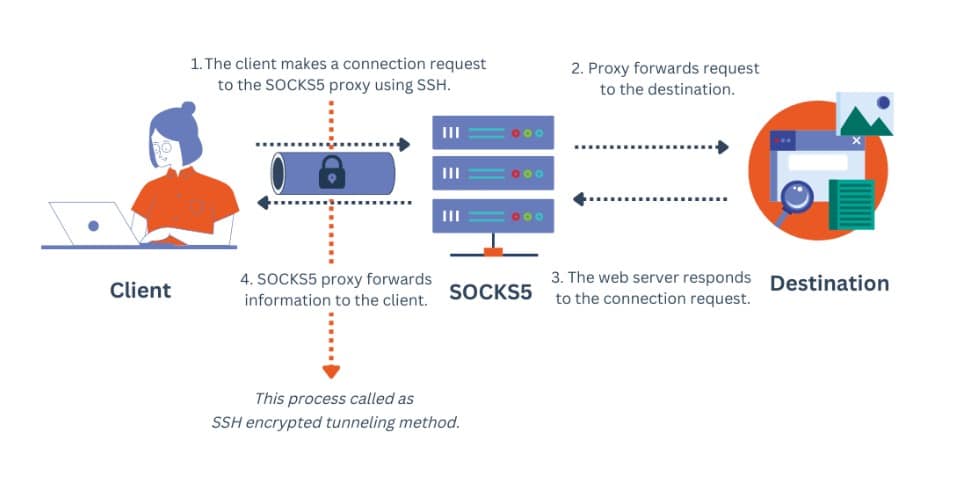The Socket Secure (SOCKS) protocol is a network protocol that facilitates communication with servers through firewalls by acting as an intermediary between clients and servers. SOCKS allows for the routing of various types of network traffic generated by different protocols or programs. A SOCKS proxy server establishes a Transmission Control Protocol (TCP) connection to a server located behind a firewall on behalf of the client. It then facilitates the exchange of network packets between the client and the actual server. Importantly, the SOCKS proxy server does not modify or interpret the network traffic between the client and the server. It is commonly used in situations where clients are restricted by firewalls and are only allowed to establish TCP connections to external servers through the SOCKS proxy server.

Reasons to use SOCKS proxies
- SOCKS proxies are a beneficial option when dealing with firewall restrictions. In situations where clients are located behind firewalls and desire to establish TCP connections to external servers, they may encounter limitations. However, SOCKS proxies provide a solution by enabling such connections.
2. SOCKS can go through TCP and they are not limited to a HTTP connection. Furthermore some SOCKS5 proxies can use UDP (User Datagram Protocol) connection to deliver datagrams over a network, ensuring efficient performance.
3. SOCKS proxies can be more flexible to employ and also tend to be faster making them ideal for downloading or transferring data via the internet.
Here are the available protocols for our proxies:
- Mobile proxies have both protocols available (HTTP/S and SOCKS5)
- Residential proxies have only HTTP/S
If you need help placing an order please click here: https://hydraproxy.com/how-to-order/